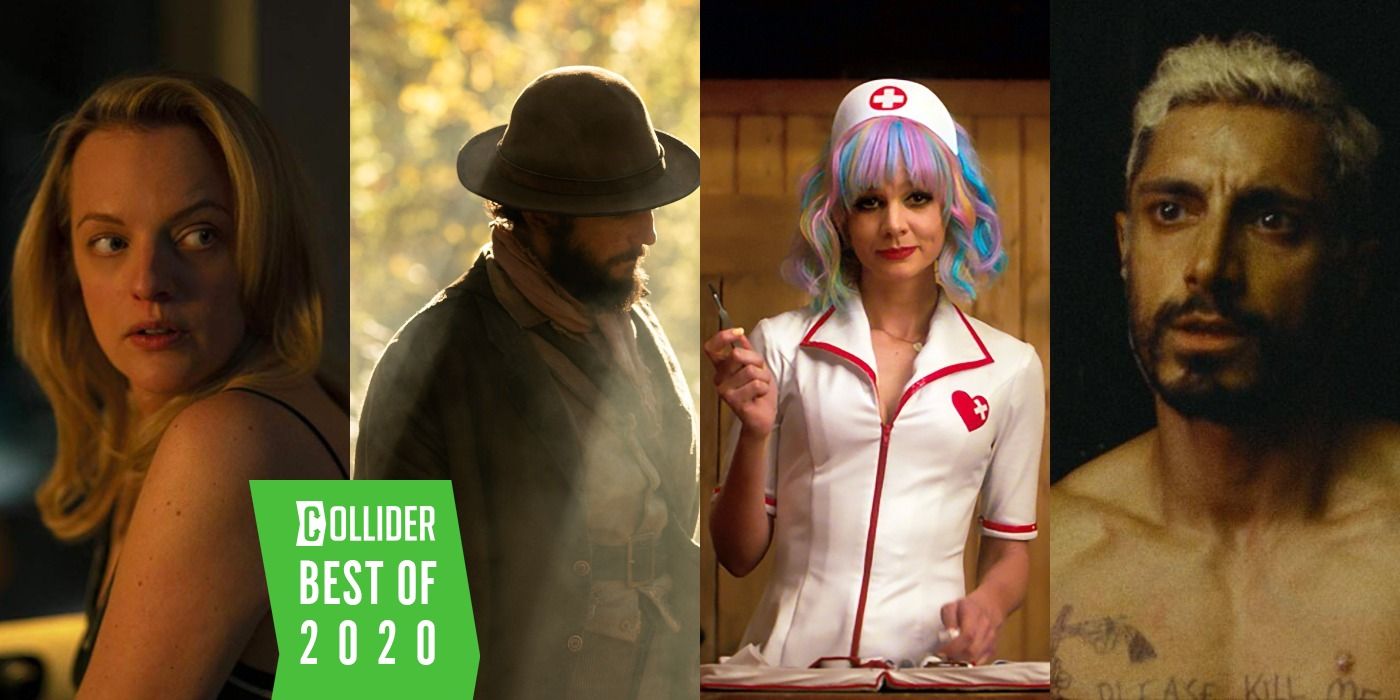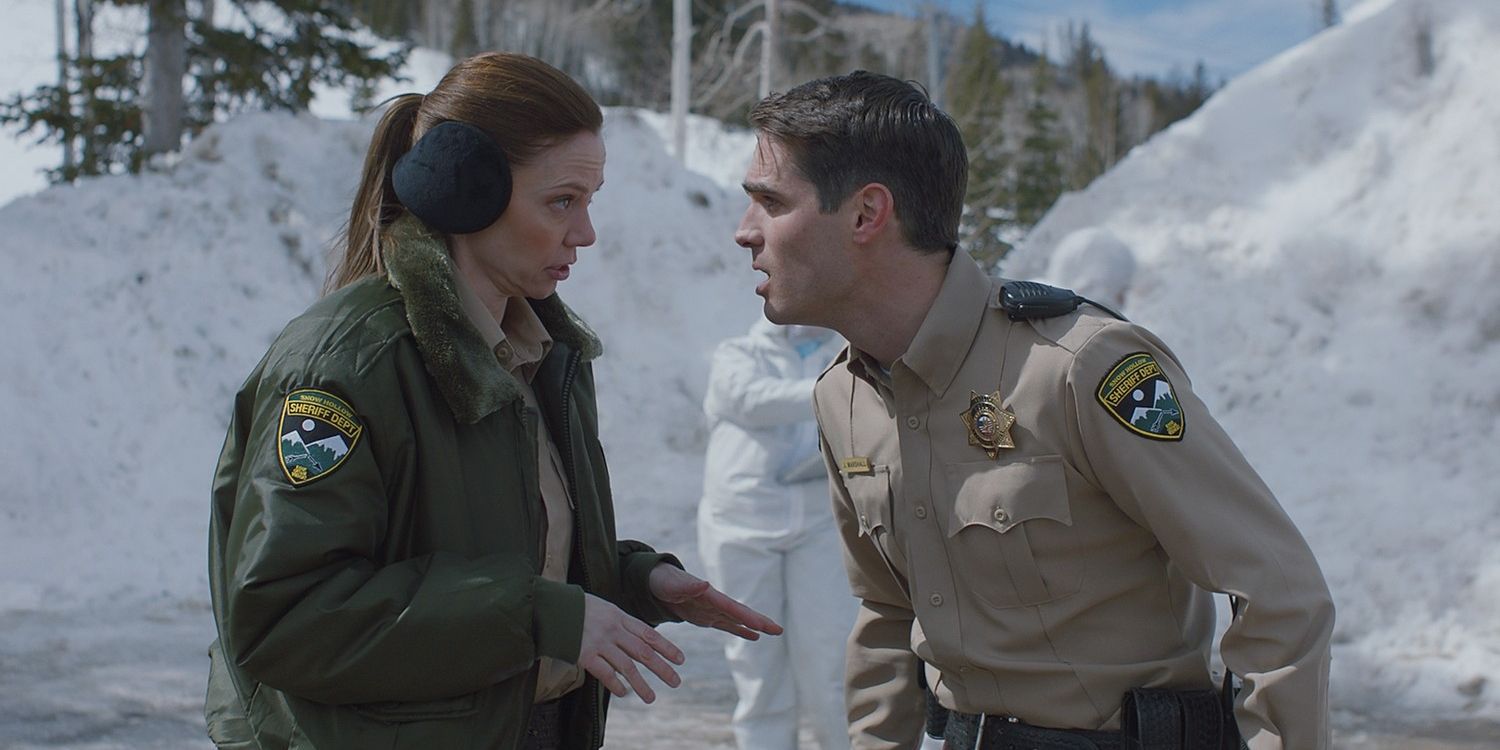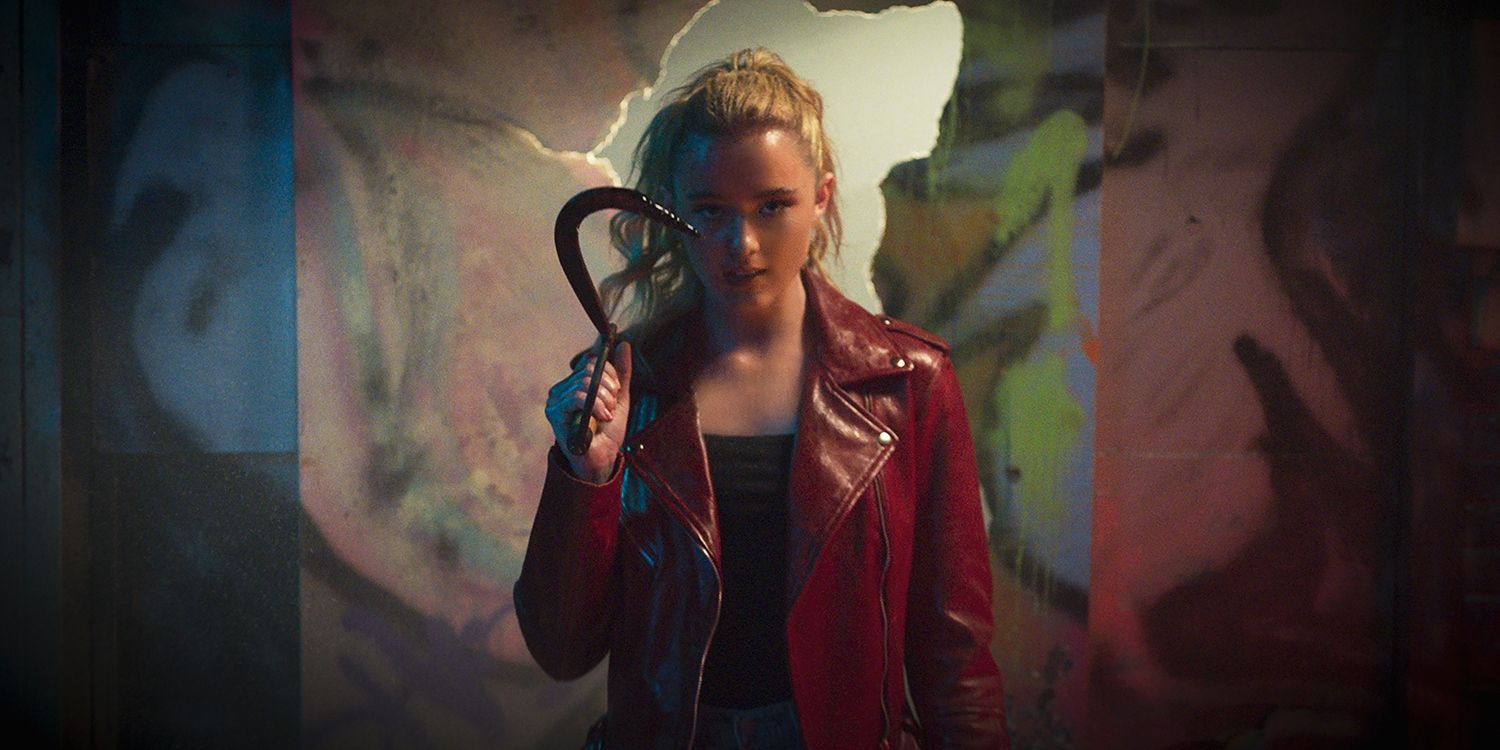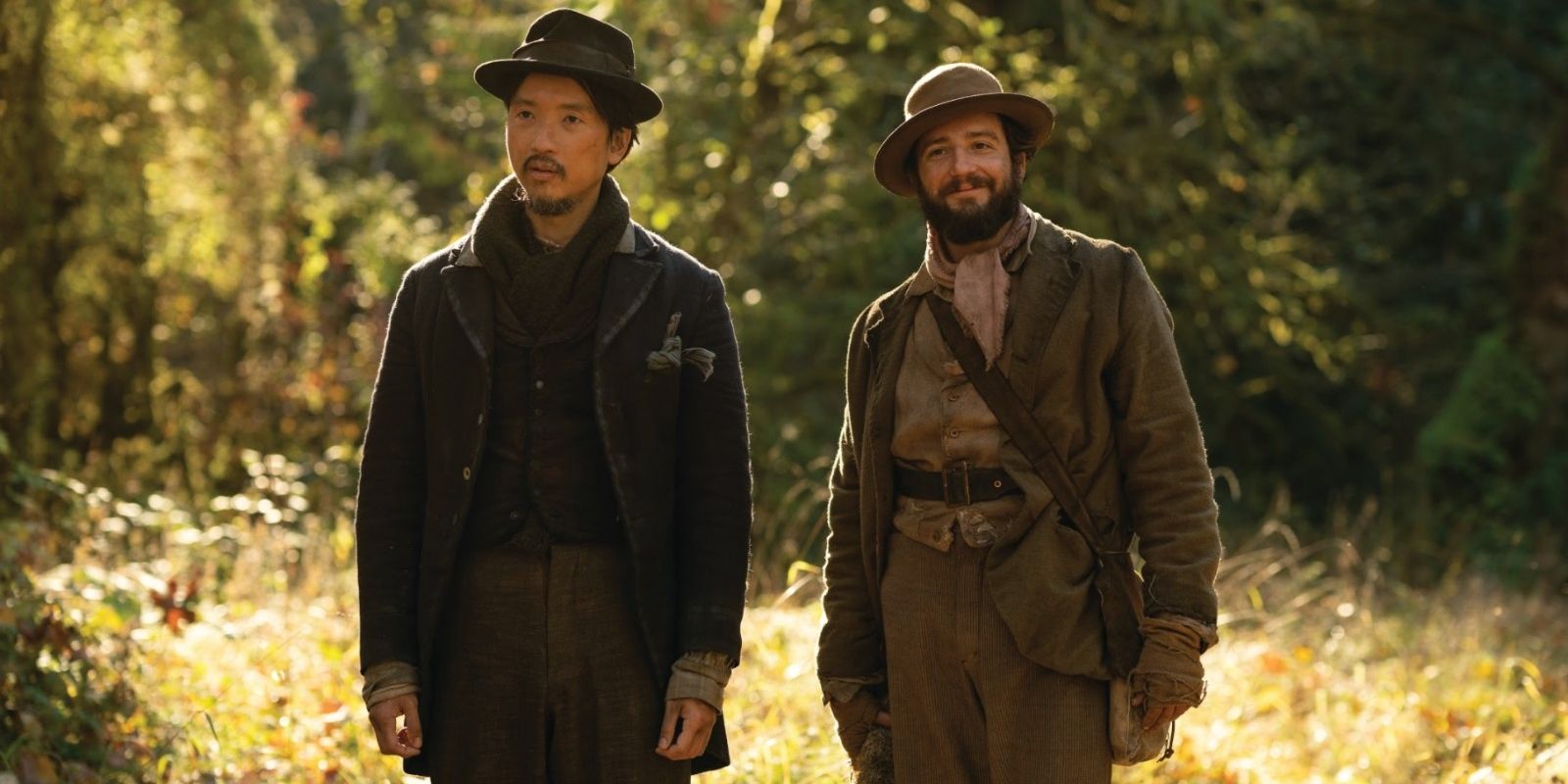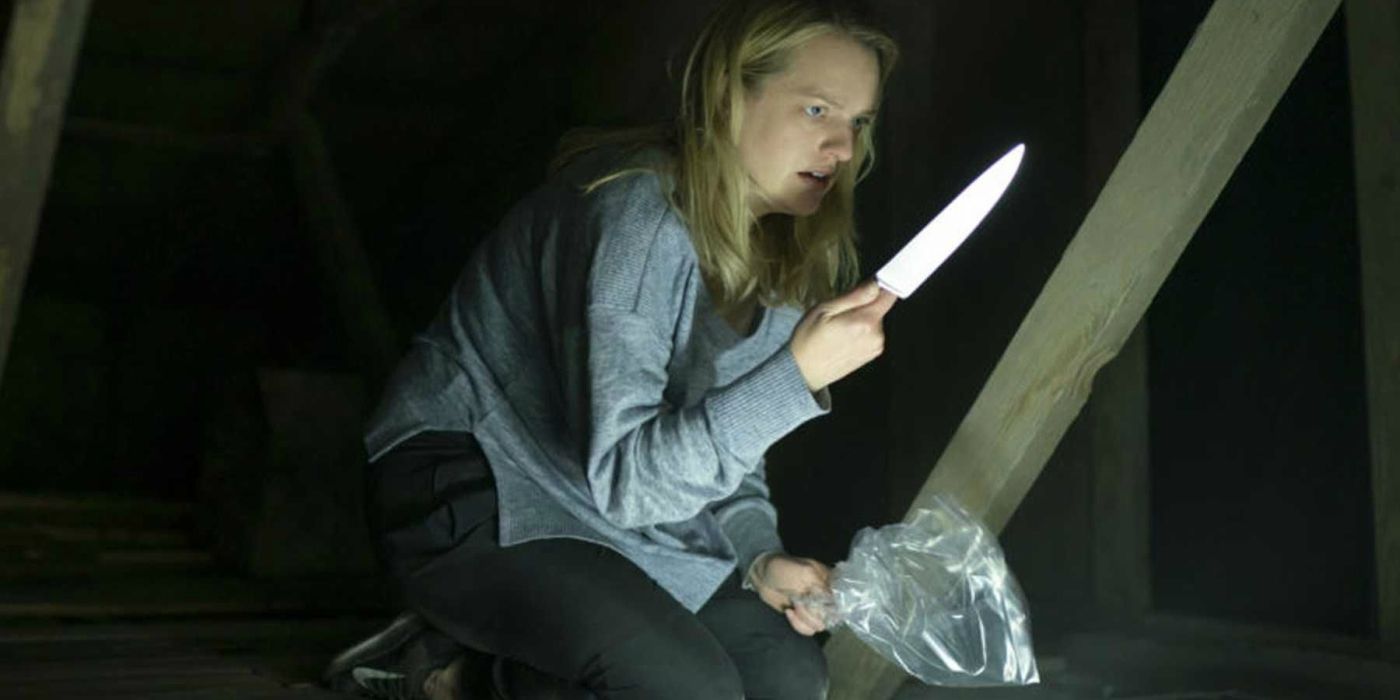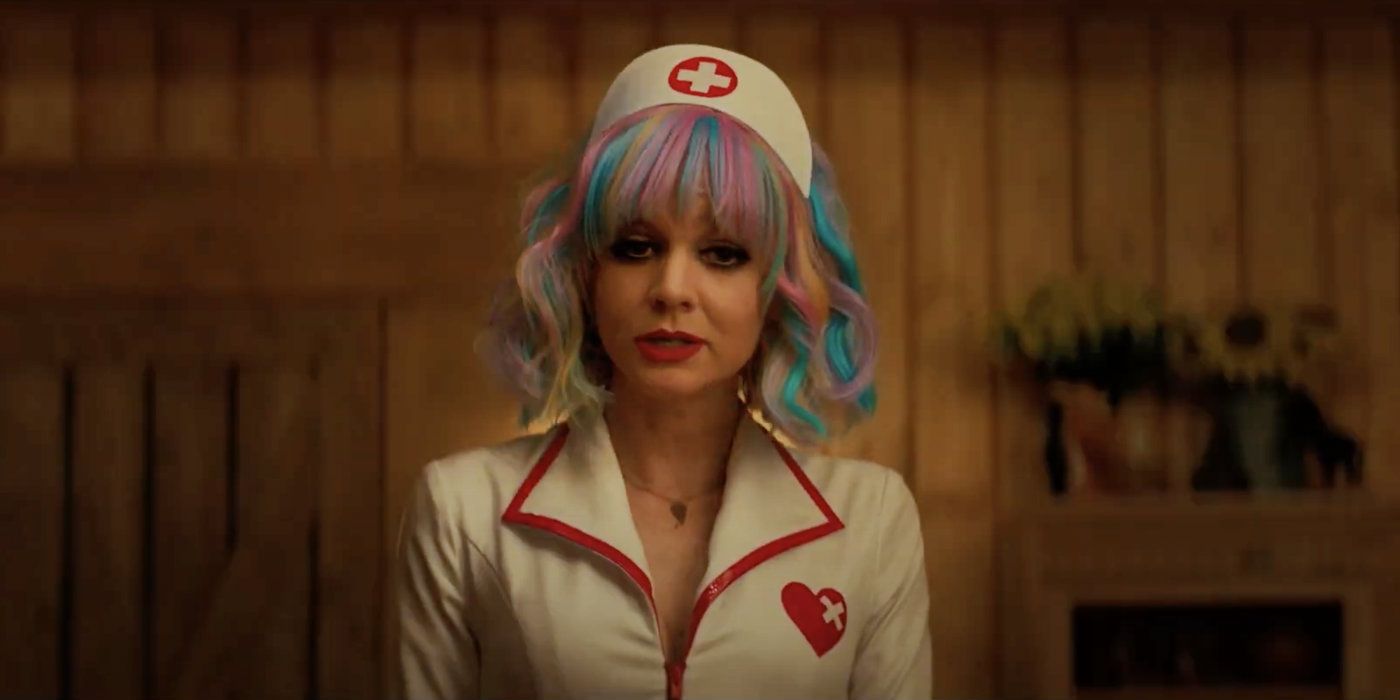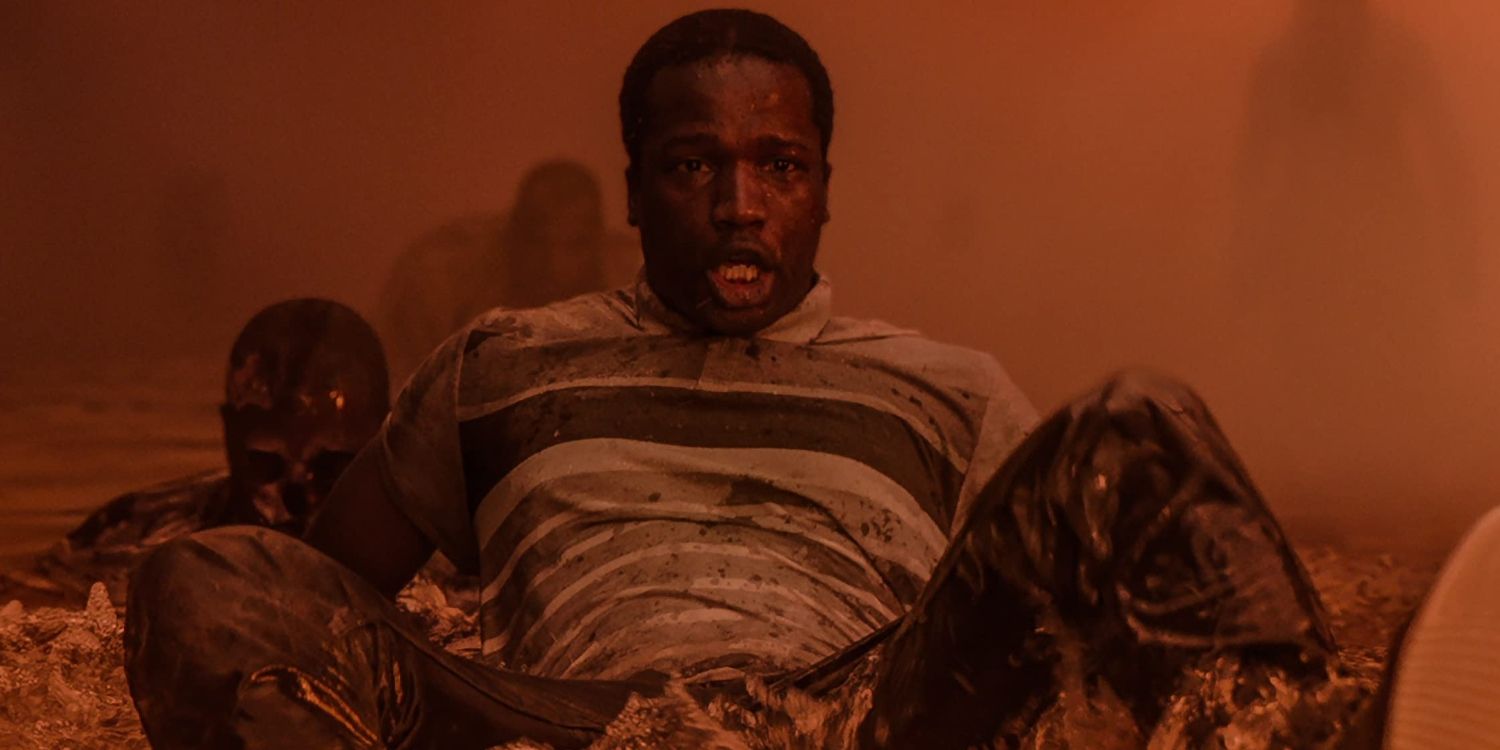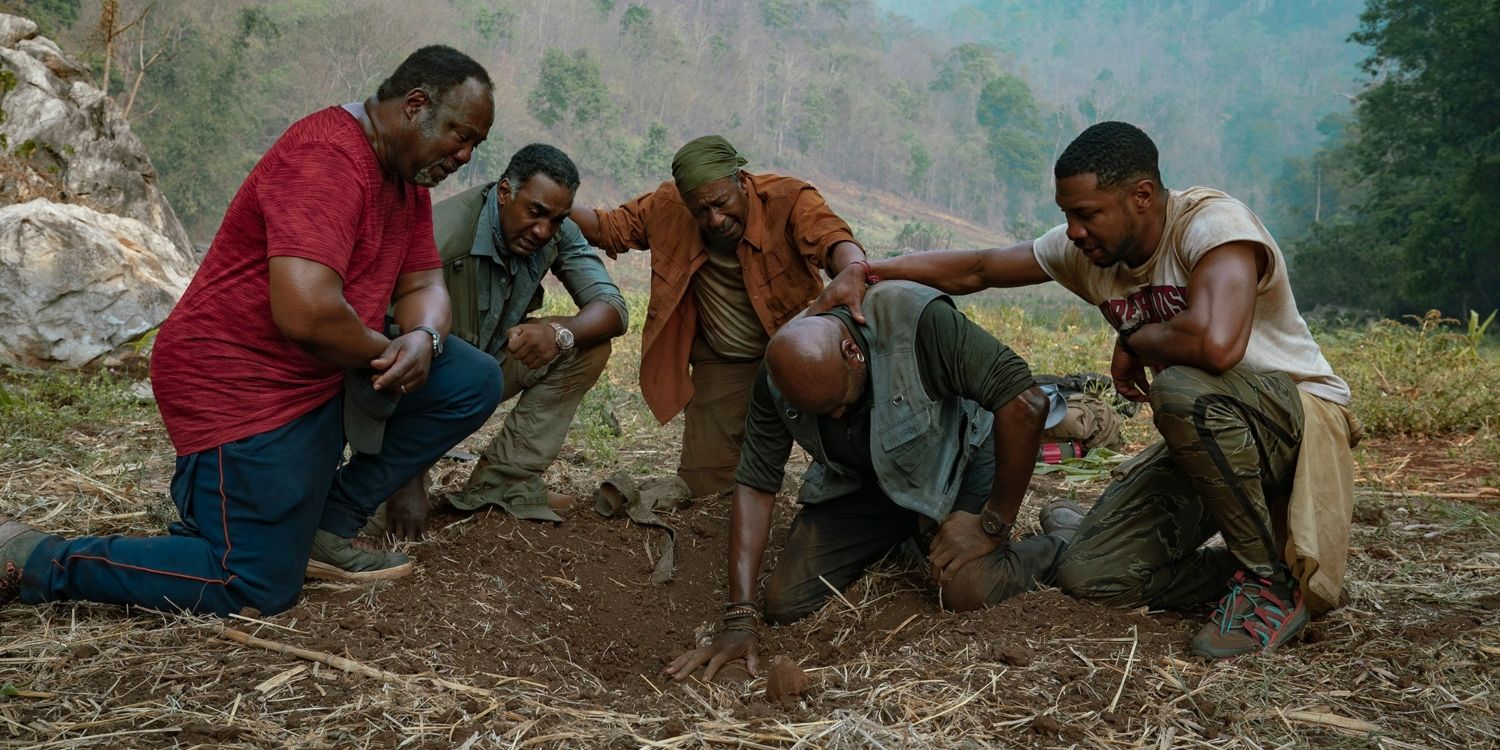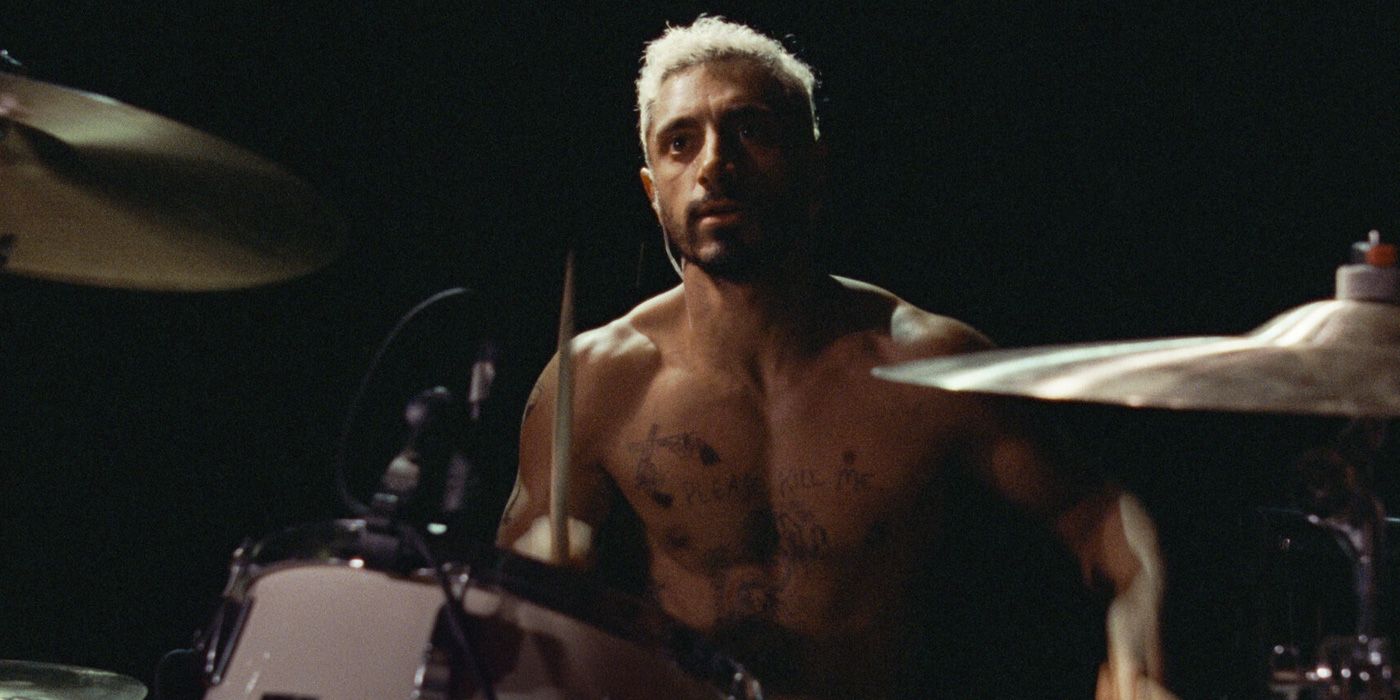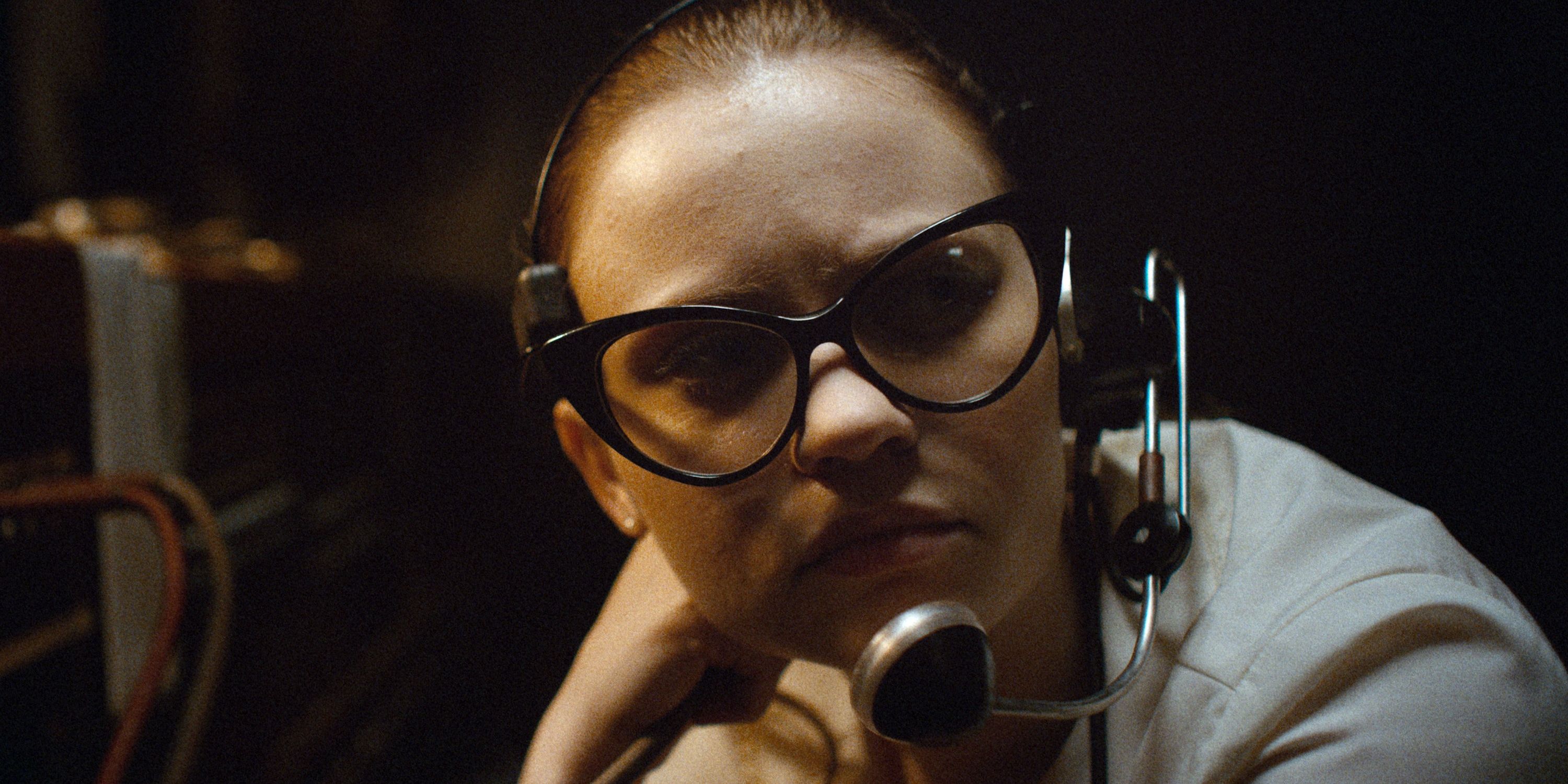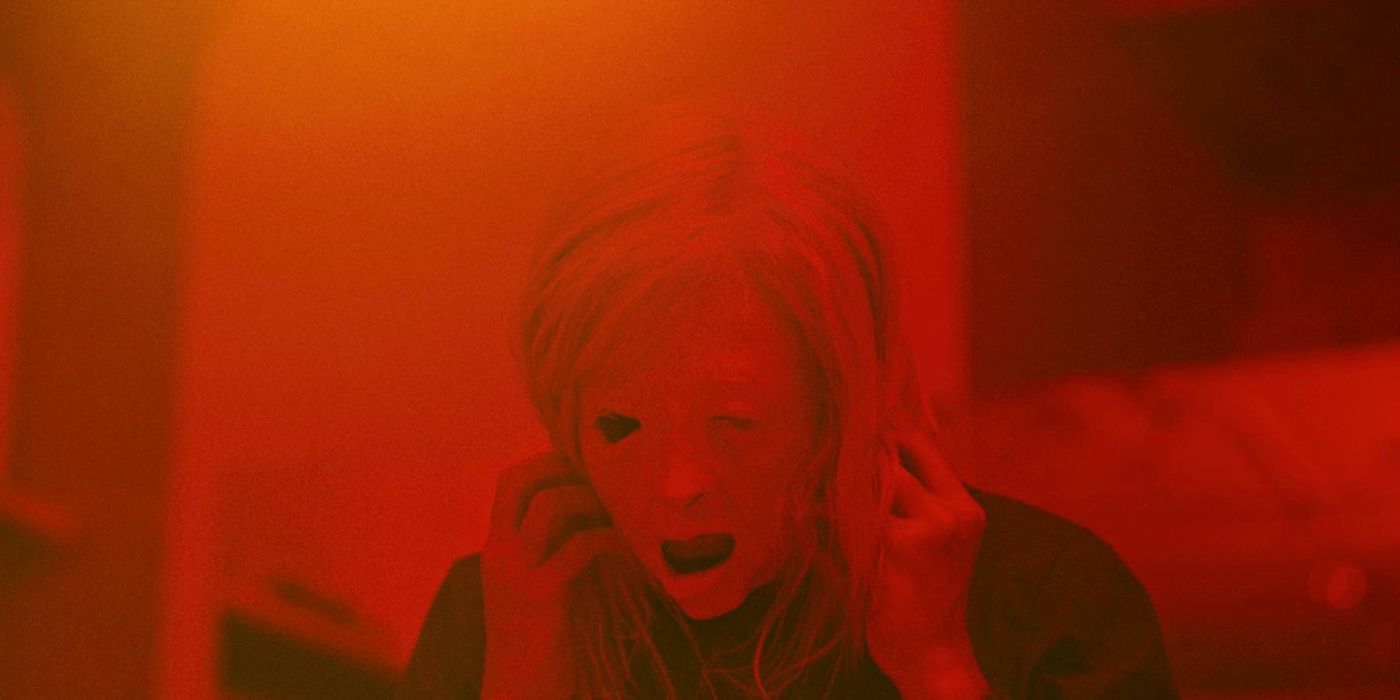2020, a pretty weird year in my humble opinion. The election. The monoliths. The global pandemic that trapped us inside our homes for nine months. Whole lotta' stuff, much to ponder in the coming year. But contrary to popular opinion, 2020 also debuted dozens of fantastic new films, even if they were a bit harder to find and couldn't be caught down at your local theater. And honestly, thank goodness. Movies have been an escape for as long as I can remember, and that's for years that weren't an endless anxiety spiral. Below, you'll find films that moved me, films that inspired me, films that inspired me, but more so than any other year, these are ten films that saved me.
Let's not belabor the point. You were there. You lived it, too. Let's celebrate, starting with these ten films that I cannot recommend highly enough.
10. The Wolf of Snow Hollow
The unholy concoction that is Fargo meets The Howling meets The Thing probably shouldn't work, and yet here is The Wolf of Snow Hollow, a truly genre-defying werewolf tale from Jim Cummings. The writer/director also stars as John Marshall, the struggling alcoholic sheriff of a small, snowbound town who is already dealing with an ailing father (Robert Forster) and rebellious daughter (Chloe East) when something big and furry starts tearing the residents of Snow Hollow to shreds. In his second feature, Cummings proves he's one hell of a juggler; this film is deeply funny, but also deeply depressing, and every so often someone gets demolished by a werewolf. But the creature haunting Snow Hollow is just a stand-in for the impossible burdens we put on ourselves, and Cummings' blowhard main character must learn how much those burdens affect the people around us. "Do you think women have had to deal with shit like this since like the Middle Ages?" Sheriff Marshall asks Officer Julia Robson (Riki Lindhome), and the look she gives him makes it clear that the joke is on a very familiar type of real-life wolf who hunts under a full moon.
9. Freaky
Freaky is a movie about bodies. Well, hold on, Freaky is actually a lot of things, and the skill with which director Christopher Landon (Happy Death Day) blends them together makes him one of the most exciting genre filmmakers working today. It's a classic slasher with a few genuinely gnarly kills. It's a John Hughes-ian coming-of-age tale. It's a body-swap comedy with all the tricks and tropes that the genre entails. But, yes, like most slasher icons, Freaky is obsessed with bodies, and a lot of that is down to casting: Kathryn Newton is Millie, a high school misfit who trades bodies with the deranged Blissfield Butcher (Vince Vaughn) and must perform an ancient ritual within 24 hours, lest the switch becomes permanent. It's occasionally easy to forget that Vaughn is a legit giant, and it's wonderful to watch him embody a character who has never felt powerful in her life discovering she can hold a bully against a wall until he pisses his pants. Newton is equally fantastic, as the Butcher can no longer overpower his enemies, but no one goes more underestimated than a teenage girl. It's not subtle, no, but it is the best of several worlds. Like the best body-swapping movies, Freaky questions how much of a person's power truly comes from their physical shells, and like the best slashers, Freaky is a terrifying reminder of how those physical shells are basically just meat. It's a movie that exists right in the middle of both those ideas, making it unlike anything you've ever seen.
8. First Cow
And now, after a bloody werewolf creature feature and a body-swap slasher comedy, comes quite possibly the quietest film of 2020. First Cow is the softest heist film ever made. It is Ocean's 11 MPH. Director Kelly Reichardt's return to the Pacific Northwest isn't so much a movie you watch as one you sit with, and when the credits roll you realize how comfortable in its environment you'd become. The film follows a softspoken cook named Cookie (John Magaro) and an ambitious Chinese immigrant named King-Lu (Orion Lee), two men who find each other in 1820s Oregon, spark a fast friendship, and concoct a scheme to make their riches. Under cover of night, the duo steal milk from the first cow(!) in the entire region, which Cookie uses to bake biscuits for a community of fur trappers desperate for a warm taste of home. The actual theft, though, is secondary to the quiet moments Reichardt is so good at capturing, along with cinematographer Christopher Blauvelt. The soft sound of Cookie sweeping leaves from King-Lu's small home. The way sunlight comes through the trees after a soft rain. Even the nightly conversations Cookie has with the cow are so achingly tender it hurts. Again, First Cow is a slow ride, the kind of film that'll take a minute to watch a ship float down the river. But it all adds up to a heartrending portrait of male friendship, the type that becomes love, the type that transcends time.
7. The Invisible Man
In his remake of Universal's 1933 sci-fi/horror classic The Invisible Man, Leigh Whannell turns empty space into a weapon. So much of the film's tension comes from parking the camera with nothing in its frame, and you wait, and you wait, and you wait. But nothing is ever there, because a person's anxiety and traumas aren't something you can see. Sure, The Invisible Man tells the story of a sociopathic tech-genius (Oliver Jackson Cohen) who develops a way to become invisible, and it tells the story of the woman (Elisabeth Moss) who can't escape him. But The Invisible Man is actually a story about abuse and the scars it leaves. It's been years since a horror movie so effectively conjured up the fear of not being believed, to the point where you might not even believe yourself. Of course, Whannell—who has been rejuvenating the genre since Saw—does this with a might assist from Moss, who puts in the type of full-body, to-the-bone performance that will have you A) Concerned for a performer's well-being and B) Mad all over again that the Academy Awards so often ignore horror. In a year mostly devoid of trips to the theater, I still think about The Invisible Man's restaurant scene, which I saw in a packed house, at least once a week.
6. Promising Young Woman
A fun exercise in ruining friendships is showing someone the film Promising Young Woman and then asking who they feel bad for. Writer/director Emerald Fennell's feature debut is challenging in a few ways, but what it seeks to challenge most is who we empathize with, and why. An absolutely out-of-this-world Carey Mulligan stars as Cassandra, a former med student who spends her nights pretending to be blackout drunk at local bars, only revealing her sober self to the men predatory enough to take (see: carry) her home. Promising Young Woman is not quite the sexy revenge thriller teased by the marketing, but that's also largely the point; Fennell's neon-glow vision mixed with the film's pitch-black undertones succeeds in reclaiming a sparkling aesthetic you might just have underestimated on the surface. (See also: "Stars Are Blind" by Paris Hilton.) Mulligan is astounding, offering silent looks sharper than most actual cutlery, while an equally vital supporting turn from Bo Burnham gives Promising Young Woman the rom-com vibes it needs until it shockingly doesn't. I wrestled with including this movie for a while because it's ending, which I won't spoil, is the only false note in a film that expertly navigated a ridiculously tight rope to get there. But it's an ending that doesn't dilute the power of what came before or the questions you're forced to sit with afterward.
5. His House
Stories about haunted houses will always have a place in popular culture because the best ones are always about the people inside them. His House, a truly remarkable first feature from director Remi Weekes, is, in fact, one of the best, melding some of the year's most spine-tingling chills and thrills with a deeply-felt immigrant story at its center. Sope Dirisu and Wunmi Mosaku star as South Sudan refugees Bol and Rial, who find asylum in a small English town and told by their government inspector (Matt Smith) to assimilate. Unfortunately, as communities have done since communities first existed, these two outsiders are rejected on principle, on the fact they look and sound a bit different. Double-unfortunately, the tiny abode they try to turn into a safe haven—the one place they can call their own—also plays host to a dark entity, one that forces Bol and Rial to confront the path of trauma and regret that led to this foreign land. Weekes has a keen sense of where classic jump-scares and impactful storytelling meet. The tension of His House is caused by the nightly apparitions haunting this couple, but it becomes tragic, unbearable, and real thanks to the knowledge they can't flee, not if they want to remain—as they're told, again and again and again by people who don't even realize it's offensive—"one of the good ones." It's a story that bleeds, as Weekes himself put it, equal parts "empathy and terror."
4. Da 5 Bloods
In a lot of filmmakers' hands, a pitch that boils down to Apocalypse Now meets Treasure of the Sierra Madre could've easily ended up a slick, surface-level Netflix romp you watch on a Sunday and never think about again. Spike Lee, across a nearly four-decade filmography, has very rarely aimed for the easy target. Instead, Da 5 Bloods is arguably late-career Lee's defining epic, a decades-spanning story that digs for treasure and finds the scars we leave behind. Four veterans—Paul (Delroy Lindo), Eddie (Norm Lewis), Melvin (Isiah Whitlock, Jr.), and Otis (Clarke Peters)—return to Vietnam to reclaim the remains of their fallen comrade, "Stormin'" Norman Earl Holloway (Chadwick Boseman)...as well as the lost gold buried by his bones. It's a sprawling movie that deals with a lot—trauma, oppression, the passage of time—but it's all anchored around the idea that America has asked a lot of people to die for it, with shit to show for it in return. It's a theme embodied by, in my mind, the single best performance of the year in Lindo's Paul, a Black Trump supporter who returns to Vietnam primarily out of spite, looking for answers to a form of injustice that doesn't have any. Lindo's extended monologue through the jungle is the most electric moment of 2020, so engaging that you don't even notice when he stops addressing the surrounding greenery and starts addressing the audience. He doesn't break the fourth wall, he slips through it, like mustard gas.
3. Sound of Metal
It's weird to introduce a film as "like nothing you've ever heard before," but the sound design on Sound of Metal is straight-up revolutionary. What could have come across as a gimmick simply works to put you in the reality of Ruben (Riz Ahmed), a heavy metal drummer and recovering addict who loses his hearing and, with it, his entire sense of purpose. It's immediately jarring for the audience to hear what Ruben hears, or, what he doesn't, as the voices around him become muddled and muffled, giving us the sense of a person suddenly finding themselves living underwater. But the beauty of Sound of Metal is that the film doesn't ultimately ask us to feel bad for Ruben, or present his disability as a life less fulfilling. Sure, the character has to learn that, too, and that's where Ahmed's truly extraordinary performance comes in, easily one of the best of the year. You can feel every muscle in Ahmed's body rejecting the hard truths Ruben has to face, the unfair but unbeatable cards he's been dealt, but then you get to see him soften step by step, and the result is something so achingly human you don't need sound to understand it.
2. The Vast of Night
The Vast of Night is so intimate it occasionally feels like a podcast, like a sci-fi story being spoken directly into your ear. Which is why it's a bonafide low-budget miracle that Andrew Patterson's feature debut also feels...gigantic. Or, I guess, vast, in a way that defies its uber-personal approach and $700,000 budget. The premise is a pure pulpy Twilight Zone treat, as an unidentified flying something is spotted above the small town of Cayuga, New Mexico in the 1950s. Newcomers Sierra McCormick and Jake Horowitz play switchboard operator Fay Crocker and radio DJ Everett Sloan, who first discover the strange signal in the sky. It's two extraordinary performances, often asked to just sit and react to an unheard voice at the other end of the line. Visually, Patterson and DP M. I. Littin-Menz divide The Vast of Night into two extremes, absolute stillness or sweeping, dynamic movement. They either park the lens directly in front of the performers and let them do their thing, or sprint to keep up with Fay and Everett as the move from building to building and block to block—or, in one particularly jaw-dropping shot, through an entire high school basketball game—in pursuit of the truth. The Vast of Night is a thrilling sci-fi feature, but it's also a testament to creativity, to doing a whole lot with a little. Just absolutely out of this world.
1. Possessor
Let's not mince words: Possessor fucked me up. Perverse, disturbing, and thought-provoking on every level, Brandon Cronenberg's sci-fi body horror is the type of film that sticks in your head even in the moments you want it out. Which, coincidentally, is basically the plot: Andrea Riseborough as Tasya Vos, a high-level assassin with a strange set of skills. Tasya carries out her hits by possessing other people's bodies, controlling their autonomy just long enough to finish the job, and then she commits "suicide," thus popping back into her original brain. But she's been doing the job too long, getting too comfortable in other people's skin; in one of the most subtly disturbing scenes I've ever seen, Tasya has to rehearse simple human pleasantries—"oh yeah, long trip, I'm starving"—before returning home to her husband and son. It's probably unfair to even mention the big body-horror shoes Cronenberg has to fill, but it's impossible to miss how adept the filmmaker is at the type of visually revolting imagery his father made so iconic. As Tasya burrows too deep into the psyche of a man named Colin Tate (Christopher Abbott, spectacular), Cronenberg's embodies her loss of self with the figure of a melting plastic mask, a visualization of a woman whose entire being is turning to primordial goop. But that only makes the viewer ask deeply uncomfortable questions about their own sense of self, their own autonomy, the permanence of this meat sack we call a body. If another set of hands suddenly started pulling the strings, would you notice? There hasn't been a day gone by this year that I haven't thought of Possessor's finale parable about a woman who one day awakes to find a worm inside her brain: "It's gotta make you wonder, whether you're really married to her...or married to the worm."
Possessor will make you wonder, and then some.
Be sure to catch up on all of Collider's Best of 2020 content and keep an eye out for more individual Top 10 lists coming soon!

